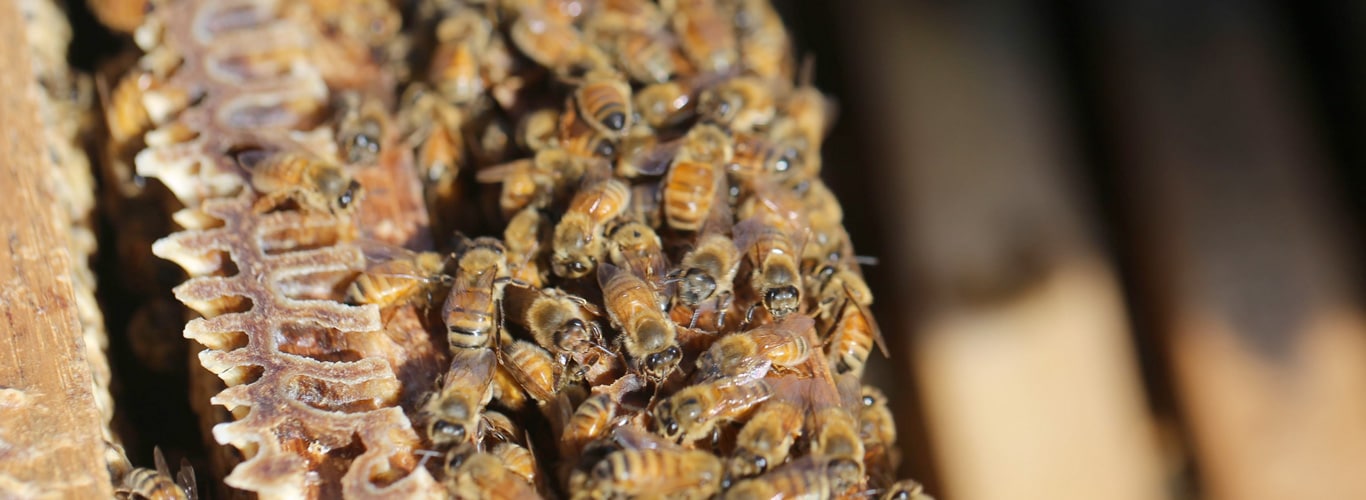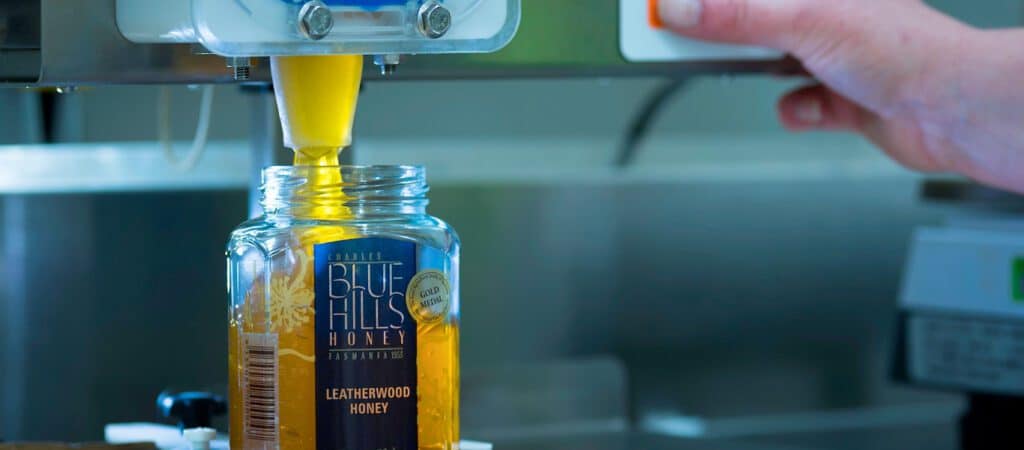Blue Hills Honey
Copyright 2025 © All rights Reserved. Design by North West Website Design
Liquor Licence: 87403

Happy bees in a healthy, natural environment produce far more honey than they need.
Other than caring for our bees – making sure they have access to an abundance of flowers – our job is simply to remove the surplus honey they make; pack it; and ship it. All with minimal handling and, of course, free of any additives.
“We make sure that our customers receive our honey, exactly as the bees produced it.”
Blue Hills Honey is a 100% natural product: as such, it contains no additives. Made entirely by our European honeybees (Apis mellifera), Blue Hills honey is sourced from the nectar of Tasmanian flowers. This natural process has amazed scientists for centuries; it remains a keen subject of research, particularly in relation to honey’s reputed health benefits. You can learn more about “the wonderful world of honey” on the Australian Honeybee Industry Council website.
It takes a special kind of person to become a beekeeper. Notwithstanding the occasional bee-sting and long days of hard work, beekeepers must be at one with their bees and the environment. This unity is needed by beekeepers in making the right decisions about where and when to move their beehives.
Blue Hill’s team of dedicated beekeepers cares for some 2000 hives, which are best managed as several smaller lots.
Blue Hill’s factory is located at Mawbanna on the outskirts of the Tarkine forest in northwest Tasmania. This region contains significant areas of wilderness including some of the world’s most fertile meadows.
The high-quality of Blue Hills honey also reflects our philosophy and approach to processing; it’s all about minimising disruption to deliver honey as pure and as natural as our bees intended.
Drawn from hives as it was in ancient times. With this in mind, our factory’s centrifuge – simply and smoothly – separates most of the beeswax leaving the honey to settle overnight into tanks. Thereafter, this perfectly pure honey is then decanted into storage drums. After sixty years of steady growth, and depending on the season, our family factory can now naturally extract some 10 tonnes of honey per day.
Throughout this minimalist processing, we take care to maintain the temperature of the honey below 45°C; this helps preserve even the most delicate flavours and aromas.
Our focus on quality led to Blue Hills being the first Australian honey producer to implement the honey industry’s B-QUAL quality assurance program. Our modern, quality controlled factory and processes pass several rigorous audits every year, ensuring compliance with the following standards:
Copies of relevant certificates are available upon request.


The International Slow Food Movement promotes and also protects the enjoyment of ‘Slow Food’.
Slow Food is made from natural, fresh ingredients, using time honoured techniques. One of Slow Food’s key initiatives is the Ark of Taste. Just as Noah’s Ark was filled with two of every creature to ensure their long term survival, so the Ark of Taste was established for the survival of the world’s most precious foods.
“The Ark of Taste aims to rediscover, catalogue, describe and publicise forgotten flavours. It is a metaphorical recipient of excellent gastronomic products that are threatened by industrial standardization, hygiene laws, the regulations of large-scale distribution and environmental damage”. Source – www.slowfoodfoundation.org
Recognising that Leatherwood honey is a rare and special food, the International Slow Food Movement committed to its preservation by including it in the Ark of Taste. Courtesy of the Tasmanian Beekeepers Association https://tasmanianbeekeepers.org.au